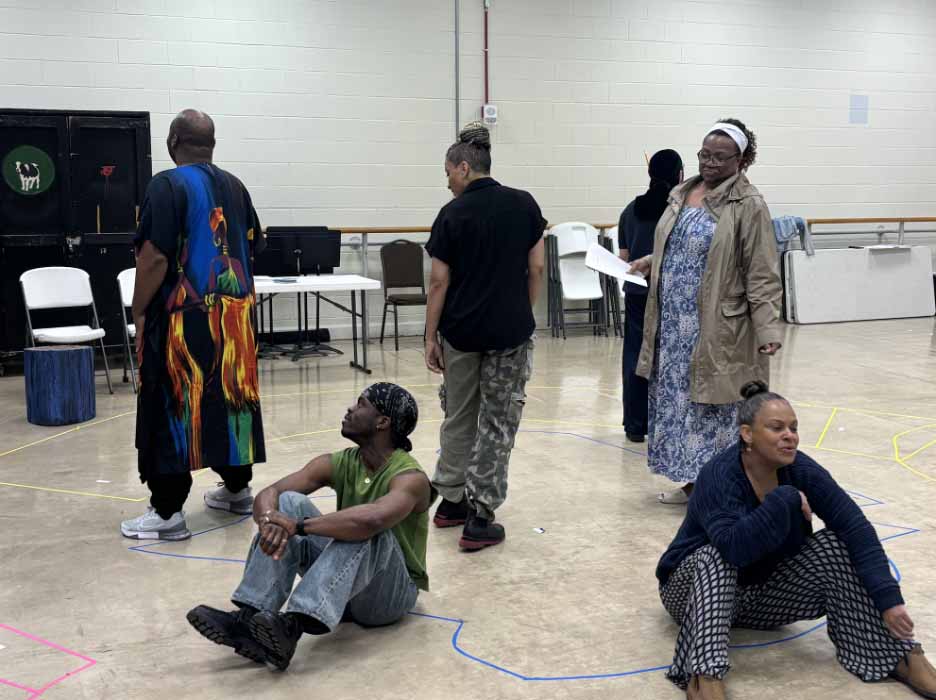The South is a complicated place, even more so if one is Black and queer. Southern conservative culture demands those on the margins to shrink, to become an inauthentic version of themselves without guaranteed safety, rarely providing an opportunity to become fully realized human beings in the place they call home.
The landscape playwright Donnetta Lavinia Grays has created inside her new play “KUDZU CALLING” will be simultaneously familiar to the real Black LGBTQ people seeing their lives reflected in a multi-dimensional way on stage, and challenging for others reluctant to acknowledge people whose lives do not mirror their own.
KUDZU CALLING—an Alabama Shakespeare Festival (ASF) world premiere, is based on Grays’ experience of returning to her native South Carolina and taking ownership of home. The play celebrates Black Southern love, queerness, playfulness, culture, and spirituality—interweaving poems and moments seeking to expand and complicate the Southern narrative.
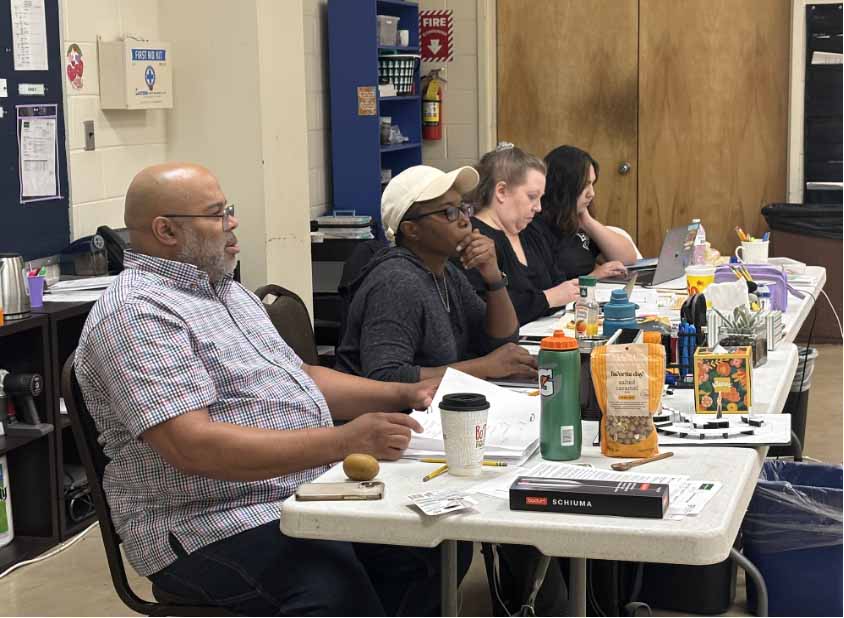
“My work has always been Black, queer, and Southern,” Grays said, who developed this new work as she traveled across the South in 2018 with former ASF artistic director Rick Dildine on the State of The South Tour.
“KUDZU CALLING has allowed me to write about us being loved…completely. And loving completely inside of this Southern soil,” Grays said.
“God is in this play,” Terrence Williams Jr., who portrays the character Pine, tells GLAAD on a Saturday afternoon during a break from rehearsal surrounded by five of his castmates, Grays, director Kevin R. Free, stage manager Lisa R. Stafford, and production assistant Kitt Williams.
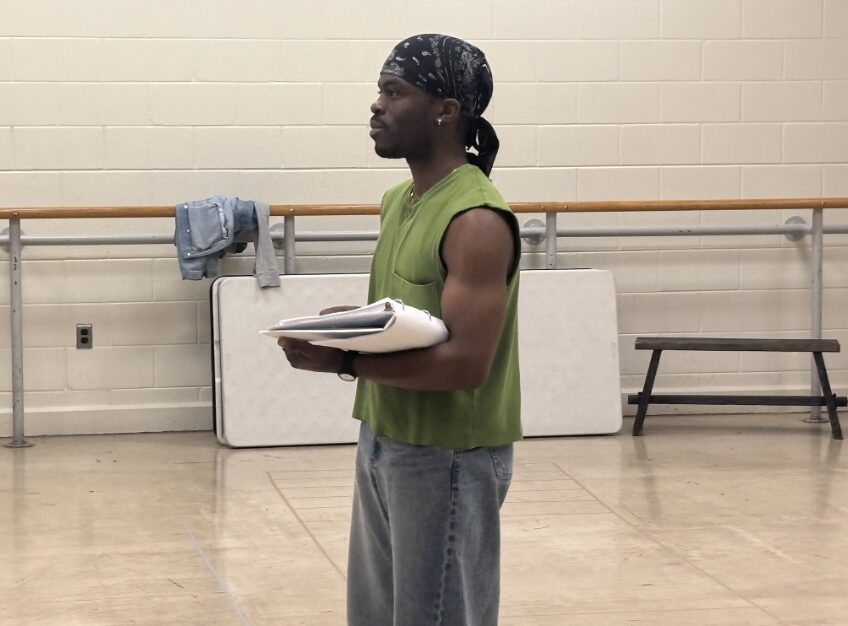
“ You don’t have to be Black and queer to understand what the show represents. It speaks to people,” he said. “It speaks to the humanity that I think we are clinging for in this current climate. There is a light surrounding it.”
“What is so unique, beautiful, and incredible about this play is there are stories in here for people that don’t feel they have ever been seen or their story has ever been heard,” said Nafeesa Monroe, who portrays Magnolia.
“We are doing our damnedest to tell those stories, some of which are resonant to us as individuals, and some of which are just resonant, period. It’s an opportunity for folks who have never seen themselves on stage and for others to witness the stories they have either turned their head or closed their eyes to.”
Actor Achille Vann Ricca, who portrays Weeping Willow, is the living embodiment of what Monroe speaks of on and off stage. As a transgender actor, Vann Ricca says KUDZU represents the first time in his career that he was expected to bring all of himself into the room.
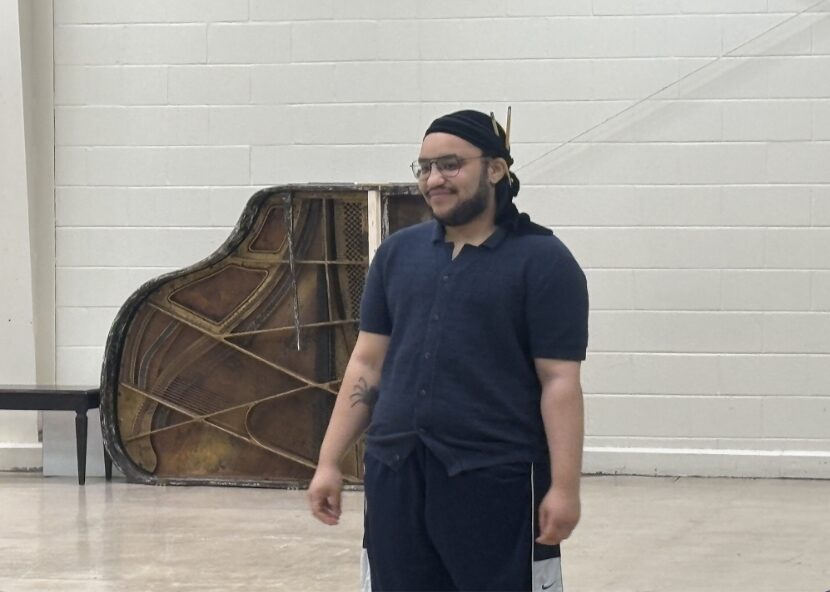
“To be able to show up as my whole self as a transgender actor—I don’t get to do that,” Van Ricca said. “Often, the queer spaces I find myself in, especially being from Boston originally, are super white. And then the Black spaces I find myself in have a tendency towards heteronormativity.”
Actor Kanoa Sims, who plays The Wanderer and uses she/they pronouns, is gender non-conforming. They credit director Kevin R. Free for creating a work environment rooted in safety, creativity, and community.
“The consideration that was shown in the audition and the callback that has carried through this entire process, with the checking in (Free provides time at the beginning of each rehearsal to allow the cast and crew to share the feelings they’re bringing into the space), with the boundary practices that create safety in being our full selves and fully expressed.”
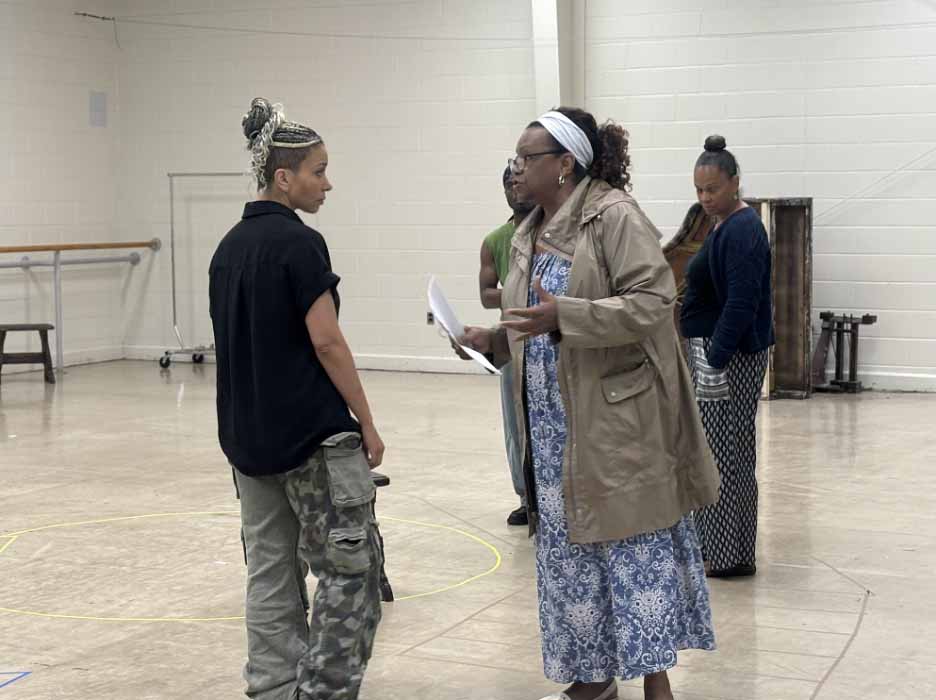
For Van Ricca, the journey from casting to rehearsal and ultimately to the Octagon Stage, where the show will run inside ASF, has been significant compared to previous roles and affirming in a way he hadn’t imagined.
“ I realized, not only have I never been cast as a trans person before, I’ve always [had to] slot myself into a cisgender experience,” Van Ricca said.” I don’t see trans people, especially Black trans people, being happy or in love. I’ve both been cut off and cut myself off from so much of what that part of being a person means. The parts that feel good,” he said.
By permitting himself to embrace the good, which includes his gender identity, Van Ricca and some of his fellow castmates admit that Grays’ script has liberated and often reduced them to tears throughout the rehearsal process.
“I have cried in my hotel room many times after rehearsal because the show—not only is it beautiful—but it captures exactly what that internal monologue can sometimes be as a Black queer individual,” Williams Jr. said.
And when you’re Black, queer, and living in the South, it can be damn hard, or as Grays explains through Sims’ character The Wanderer: “See, the problem with coming home is having left in the first place. The problem with staying home is the staying.”
The complications of home
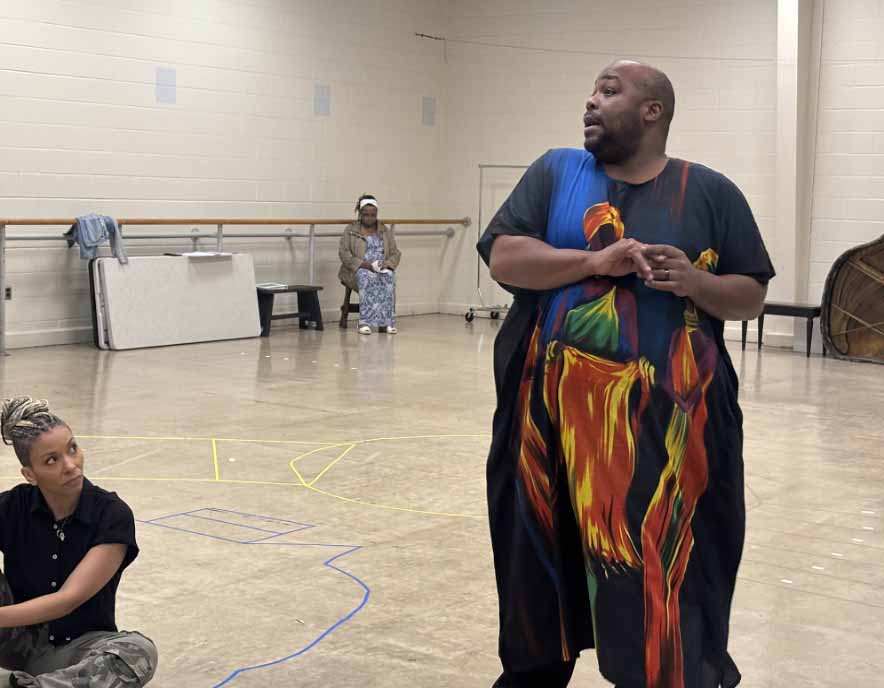
Terrance Henderson, a Columbia, SC-based actor who portrays Dogwood, has navigated the emotional terrain of being a Black queer actor who reluctantly decided to remain in the South when everyone in his circle expected him to leave for New York City to conquer Broadway.
“I just knew that there was a purpose for me there [in Columbia, SC], and I didn’t know exactly what it was, but I knew that at some point it would illuminate,” Henderson said before Grays, also a Columbia native, leaned over to share Henderson’s status as a local celebrity in their hometown.
Through tears and deep sighs, it’s apparent that Henderson has been tested and wears the battle scars of surviving as his authentic self in a region never designed to see God operating through him and his artistry.
“Someone said to me early in my career that [I couldn’t] leave because if I did, there wouldn’t be any more [artistic development or opportunities],” Henderson said. “I look back now, and I see so clearly the choice to stay and what planting those seeds grew. There are more of me there now.”
Grays affirms Henderson’s humanity and the difficult decision to remain in the South.
“I think I walked into what you built there,” Grays told Henderson of her experience after she relocated briefly back to their hometown in 2023.
“I am grateful that you made that space. I walk down Main Street and see Pride flags everywhere. I’m like, where was this when I was a child? Oh, it was built by someone,” Grays said. “Thank God for your hands, man.”
“I’m just overwhelmed with what this play has shown me,” Henderson added. “It’s been a real God thing for me, this whole process.”
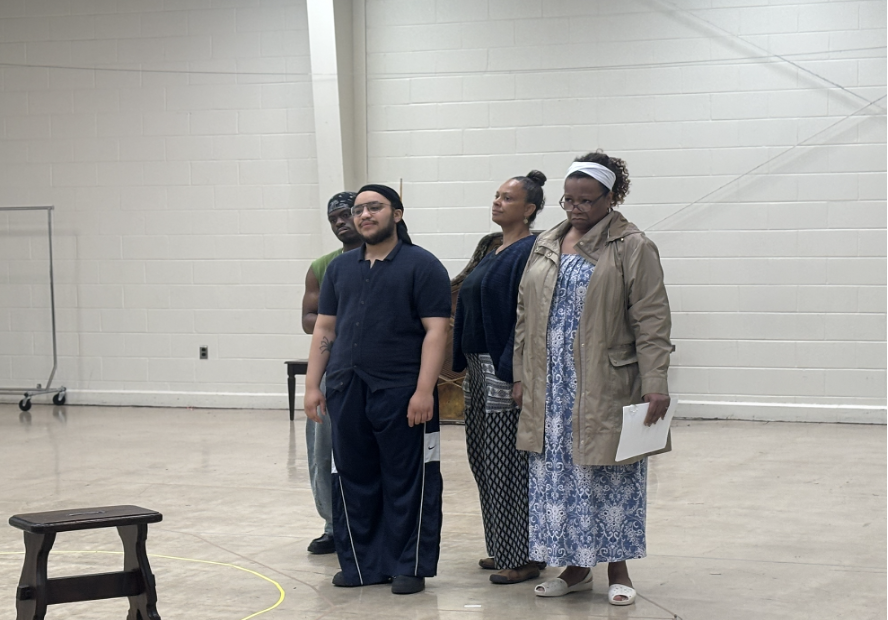
Will Alabama audiences who are historically unaccustomed to seeing LGBTQ themes explored on stage at ASF be receptive? Henderson is unafraid to find out.
“I have no fear about it because I know this journey intimately,” he said. “It’s so necessary, and the necessity is much greater than any possible negativity.”
“ Whatever reaction they have, that’s the reaction they are meant to have,” Monroe said. “And they were still meant to be there in that space at that moment. That is the lesson they are there and present for.”
And without skipping a beat, as if she is reaching for her favorite writing device to draft her next masterpiece, Grays’ voice echoes throughout the rehearsal room.
“This play was not written in fear,” she said. “It was written in defiance of it. That’s why it’s love-centered. That’s why it’s sexy. That’s why it’s deeply spiritual. That’s why it is complicated in the ways that home is. So, I offer that to the company, the audience, the reader, and anyone who hears about it on the street. The play was not written inside of a fear-based place. It was written in defiance of it.”

KUDZU CALLING runs at the Alabama Shakespeare Festival on the Octagon Stage from May 29 to June 8. Tickets can be purchased online or by calling the theatre box office at 334-271-5353.

